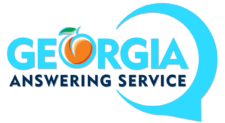
Why Georgia Businesses Thrive with After-Hours Support Services
In the competitive landscape of Georgia’s business environment, providing continuous customer support can significantly differentiate a company from its competitors. After-hours support services have become a crucial strategy for businesses looking to enhance customer satisfaction and drive growth. Understanding what after-hours answering services are and how they function can illuminate why they are so beneficial for businesses in Georgia.
What is After-Hours Answering Service Support?
After-hours answering services are external or outsourced services that manage incoming calls for a business outside of its regular operating hours. Typically, this includes evenings, weekends, and holidays when the main business operations are closed. These services ensure that a business can maintain communication with its customers around the clock, providing a seamless experience even when the physical office is not open.
How It Works
The operation of an after-hours answering service is straightforward yet highly effective:
- Call Routing: Calls made to the business during after-hours are automatically routed to the answering service through call forwarding.
- Professional Handling: Trained professionals at the answering service take the calls. These agents are equipped with information about the business to answer questions, provide customer support, resolve issues, and take messages accurately.
- Message and Information Forwarding: Details of calls, messages, and any actions taken are recorded and forwarded to the business. This can be done in real-time or through a summary report the following business day.
Benefits for Georgia Businesses
Offering after-hours support through an answering service can provide several tangible benefits for businesses across various sectors in Georgia.
Increased Customer Satisfaction and Loyalty
The immediate benefit of after-hours answering services is the ability to offer constant support. Customers appreciate a business that is always reachable, which can significantly enhance customer satisfaction and loyalty. For businesses in competitive markets like Atlanta’s bustling economy or Savannah’s tourism-driven sectors, this can mean the difference between retaining a customer or losing them to a competitor.

Expanded Market Reach
Georgia’s strategic location as a logistic and business hub in the Southeast makes it a prime area for businesses that serve not just local but also national and international markets. After-hours answering services allow these businesses to accommodate customers in different time zones, effectively expanding their market reach and operational hours without the overhead costs of staffing a 24/7 call center.
Enhanced Professional Image
Small businesses and startups can particularly benefit from the enhanced professional image that comes with an after-hours answering service. It projects an image of reliability and dedication, making the business appear larger and more established than it may actually be, which can be crucial for attracting and retaining clients.
Cost Efficiency
For many businesses, the cost of maintaining a full-time, in-house team to handle after-hours calls can be prohibitive. Outsourcing this need to an answering service is a cost-effective solution, eliminating the need for additional overhead expenses like extended hours wages, additional office space, and training costs associated with running a 24/7 operation internally.
Improved Work-Life Balance for Employees
By using an answering service, businesses in Georgia can also improve work-life balance for their employees. Staff are not stretched thin to cover extra shifts or remain on call during nights, weekends, or holidays. This can lead to higher job satisfaction and lower turnover rates.
After-hours answering services provide a strategic advantage for Georgia businesses looking to improve customer service, expand their reach, and enhance their professional image while managing costs effectively. Whether you’re a small local shop or a large corporation, these services offer a practical solution to meet customer needs around the clock, ensuring that your business can thrive in Georgia’s dynamic market environment.

The Impact of After-Hours Support in Georgia’s Niche Markets
Georgia is a diverse state with a variety of niche markets thriving in its different cities. From Atlanta’s tech startups to Savannah’s tourism businesses, each city offers unique opportunities that can be enhanced by after-hours support services. Let’s explore how specific cities in Georgia cater to niche markets and how after-hours support can help these businesses stand out.
Atlanta: Tech Startups and Health Tech
Atlanta has become a hub for technology, particularly with a focus on health tech, fintech, and SaaS companies. These sectors often serve customers and clients around the globe, necessitating 24/7 interaction, especially when dealing with IT support or customer service for software products.
- After-Hours Impact: For tech companies, having after-hours support means they can provide continuous tech support and customer service, which is critical for maintaining user satisfaction and service reliability. This round-the-clock availability is crucial for retaining competitive edges, particularly when dealing with international clients across various time zones.
Savannah: Tourism and Hospitality
Savannah’s charm lies in its rich history and vibrant tourism sector. Businesses in this niche include hotels, travel agencies, and tour operators, all of which benefit from being able to take reservations and respond to tourist inquiries after regular business hours.
- After-Hours Impact: For the tourism and hospitality industry, after-hours support ensures that no booking opportunities are missed. It also enhances the visitor experience by providing tourists with 24/7 access to information and assistance, helping businesses stand out in a city known for its hospitality.

Augusta: Golf Tourism and Sports Merchandising
Home to the Masters Golf Tournament, Augusta has a niche market in golf tourism and related sports merchandising businesses. These businesses see a significant influx of clients and customers during tournament seasons and related events.
- After-Hours Impact: Sports and event-based businesses often experience peaks in demand around specific events. After-hours services allow these businesses to maximize their sales during these peak times without missing out on potential customers who might call after typical business hours.
Athens: Education Services and College-Town Enterprises
As the home to the University of Georgia, Athens has a thriving market around educational services and businesses catering to college students and university staff, including bookstores, tutoring centers, and student housing services.
- After-Hours Impact: For educational services and college-town businesses, having after-hours support can mean providing vital information to students and parents during non-school hours. This support can be crucial during registration periods, exam times, or for international students in different time zones.
Columbus: Military and Defense-Related Services
Columbus, near Fort Benning, has a significant market for businesses serving military personnel and their families, including defense contractors and various service providers that support military families.
- After-Hours Impact: Businesses that serve the military community must often accommodate irregular schedules and emergency needs. After-hours support ensures that military families can access services at times that suit their often unpredictable schedules, thereby enhancing service perception and client retention.
Each city in Georgia presents unique business opportunities within its niche markets, and after-hours support services play a crucial role in ensuring these businesses maximize their potential. By offering round-the-clock customer support, businesses not only meet the evolving demands of their specific clientele but also significantly enhance their competitive advantage in the marketplace. Whether it’s a tourist needing late-night booking assistance in Savannah or a tech professional requiring software support in Atlanta, after-hours services ensure that businesses remain responsive and customer-centric at all times.

The Risks of Forgoing After-Hours Support
While implementing an after-hours support service can dramatically improve customer satisfaction and business outcomes, the absence of such a service poses significant risks to businesses, especially those operating within niche markets in cities like those across Georgia. Here are some of the primary risks associated with not providing after-hours support:
Missed Revenue Opportunities
One of the most immediate and apparent risks of not having after-hours support is the potential loss of revenue. Customers who reach out during non-business hours with intent to purchase or book services might turn to competitors if they encounter voicemail or no response. This is particularly critical for industries like tourism or tech where decisions and transactions often happen during evenings or weekends.
Damage to Brand Reputation
Today’s consumer expects quick, if not instant, responses to inquiries. Companies that fail to provide after-hours support might be seen as inattentive or unresponsive. This perception can be damaging to a brand’s reputation, particularly in the age of social media where negative experiences can be amplified and shared widely, potentially deterring future customers.
Customer Dissatisfaction and Churn
For existing customers, the lack of support during off-hours can lead to frustration and dissatisfaction, especially if they encounter issues that require immediate attention. This dissatisfaction can lead to increased churn rates, as customers may seek out competitors who offer more comprehensive support options. In sectors like healthcare tech or financial services, where issues may need urgent resolution, the availability of after-hours support can be crucial to retaining customer trust and loyalty.

Operational Inefficiencies
Without after-hours support, daytime staff may be overwhelmed with backlogs of requests that accumulate overnight or over the weekend. This can lead to slower response times, increased pressure on staff during regular hours, and generally lower operational efficiency. Staff may also have to spend additional time sorting through and prioritizing issues that could have been addressed or at least triaged by an after-hours team.
Legal and Compliance Risks
For certain industries, there may be legal or compliance implications related to response times. Healthcare providers, for example, may be required to provide timely responses to patient inquiries under regulations like HIPAA in the United States. Without after-hours support, these organizations risk non-compliance, which can lead to fines and other penalties.
Reduced Competitive Edge
In highly competitive markets, the ability to offer extended support can be a key differentiator. Businesses that do not provide after-hours support may find themselves at a competitive disadvantage, unable to offer the level of customer service that peers do, which might be a deciding factor for many customers when choosing between services.
The decision to forgo after-hours support should not be taken lightly, given the myriad risks associated with such a choice. Businesses must carefully weigh these risks against the cost and logistical considerations of implementing an after-hours service. Often, the benefits of providing 24/7 support— in terms of both revenue generation and customer satisfaction—will outweigh the costs, making it a wise investment for businesses aiming to grow and succeed in today’s demanding market environment. By addressing customer needs at all hours, businesses not only enhance their service offerings but also build stronger, more resilient relationships with their customers.
